NYC to pay up to $6M — or $21K each — to protesters ‘kettled’ or beaten by cops during 2020 demonstration
Contact The Author
The city has agreed to shell out $21,500 to each of the more than 300 protesters who were confined and some beaten or pepper-sprayed by NYPD officers in The Bronx during the nationwide 2020 George Floyd demonstrations.
The proposed settlement — which will have to be signed off on by a federal judge — was published in a Manhattan federal class-action suit filed by the protesters who were “kettled” by cops at the protest in Mott Haven on June 4, 2020.
Protesters who were unlawfully charged with a crime after being confined by officers will receive an additional $2,500, according to the terms of the settlement.
If Judge Colleen McMahon okays the proposed agreement, the city would have to shell out up to $6 million to the protesters.
It could be the highest per-person amount awarded in a mass-arrest class-action lawsuit in city history, according to a statement from plaintiff attorneys Ali Frick and Doug Lieb.
The protest formed as the coronavirus pandemic raged in the city and unrest spread in cities across the US in response to the police killing of George Floyd in Minneapolis, Minnesota.
Protesters were called to action that day by two activist groups who taunted the NYPD with a flyer of a burning cop vehicle and incendiary phrases that encouraged demonstrators to break the 8 p.m. curfew that had been imposed in the city in the days prior.
Advertisement
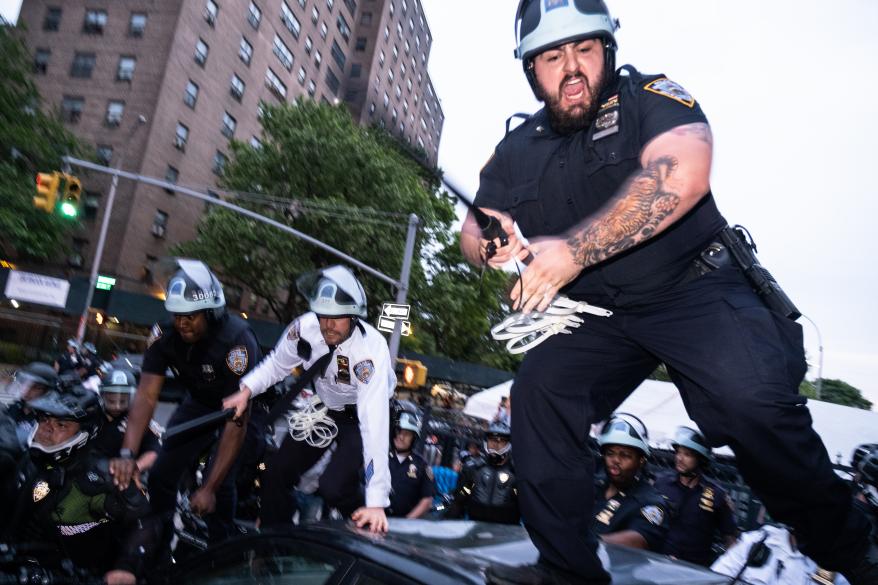

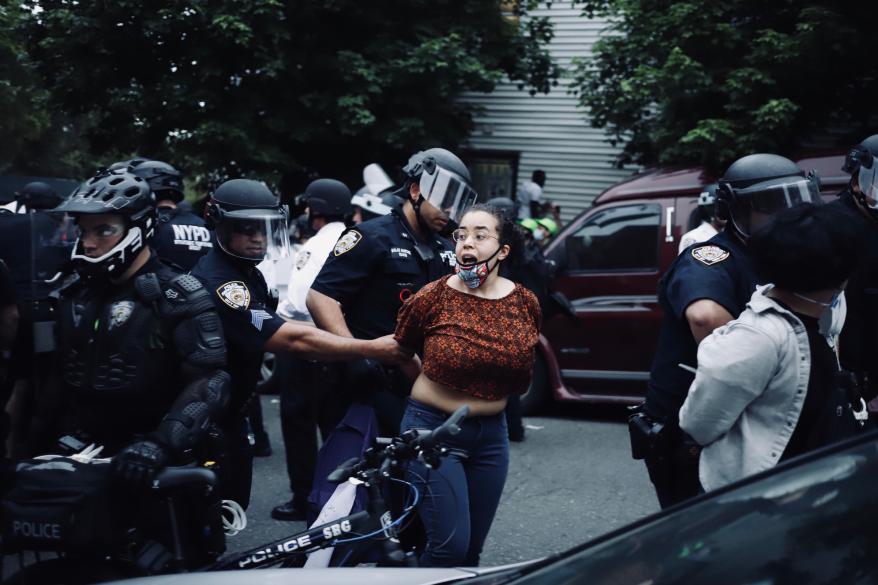
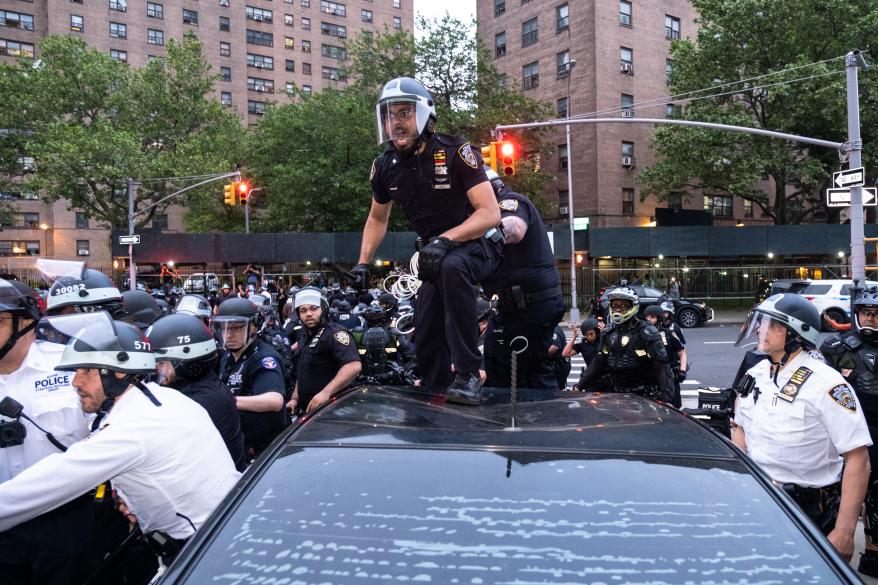
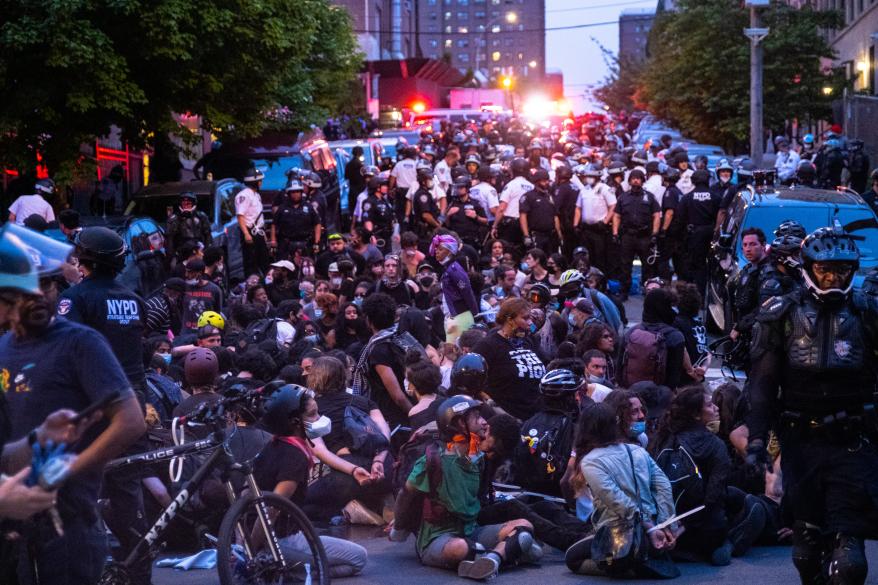
Police confined the more than 300 protesters that day and waited until about 10 minutes after 8 p.m. to charge at and arrest the demonstrators.
The protesters were cuffed with zip ties, battered with police batons and pepper-sprayed, according to the suit.
“The New York City police blocked people from leaving before the curfew and then used the curfew as an excuse to beat, abuse, and arrest people who were protesting peacefully,” Ida Sawyer, acting crisis and conflict director at Human Rights Watch, who co-authored a report about the incident, said months after the protest.
“It was a planned operation with no justification that could cost New York taxpayers millions of dollars,” Sawyer added.
At the time, then-NYPD Commissioner Dermot Shea defended the tactics, saying they were “executed nearly flawlessly.”
He also said cops confiscated hammers, lighter fluid, gas masks and fireworks from people arrested while going to the demonstration.
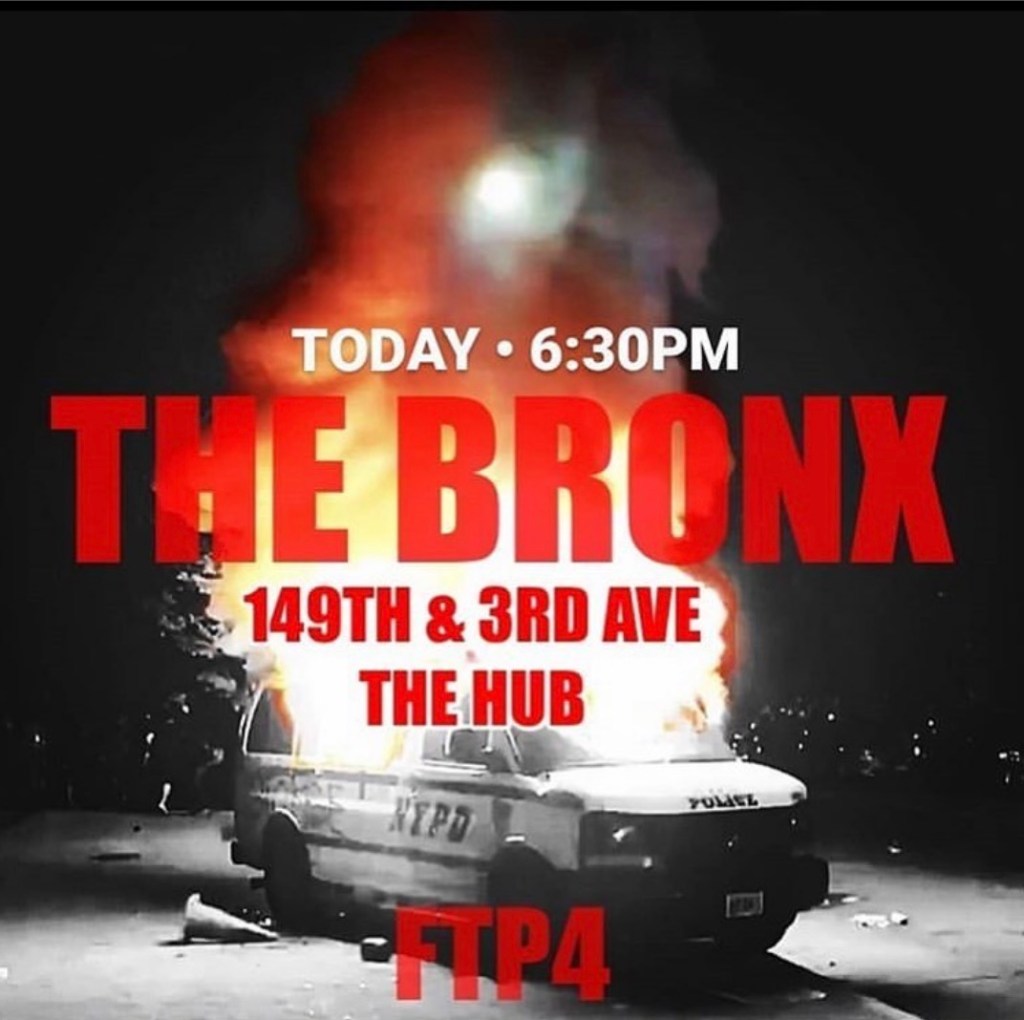
“In this particular incident, we had information regarding the intent to destroy property, injure cops and to cause mayhem,” Shea said at a press briefing at the time.
“This wasn’t again about protests, this was about tearing down society.”
Then-Mayor Bill de Blasio largely defended the tactics of the cops after outrage over the kettling grew in the months following the incident — but said the NYPD was wrong for arresting legal observers.
“Two-and-a-half years after the protests of 2020, much of the NYPD’s policies and training for policing large-scale demonstrations have been re-envisioned based on the findings of the department’s own, self-initiated analyses and on the recommendations from three outside agencies who carefully investigated that period,” the NYPD said in a statement.
Then-Mayor Bill de Blasio largely defended the tactics of the cops after outrage over the kettling grew in the months following the incident — but said the NYPD was wrong for arresting legal observers.
Advertisement

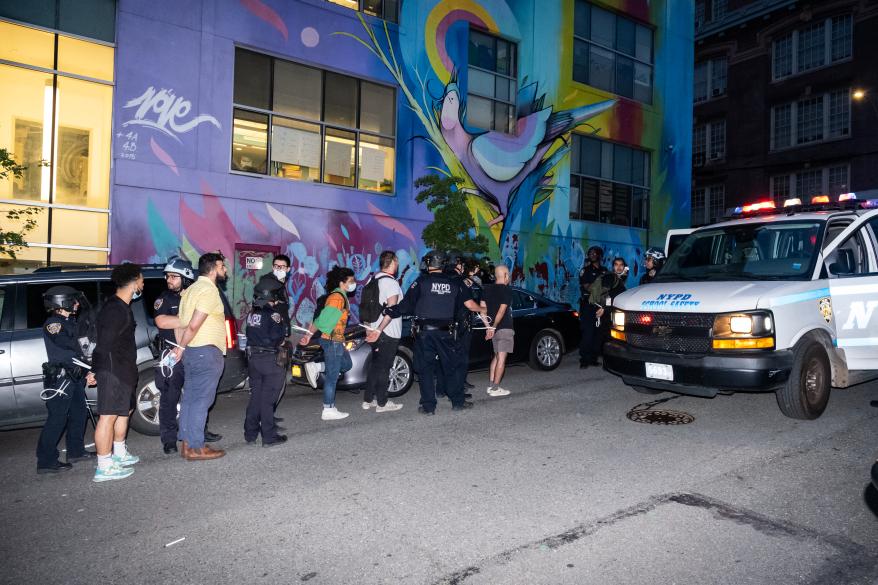
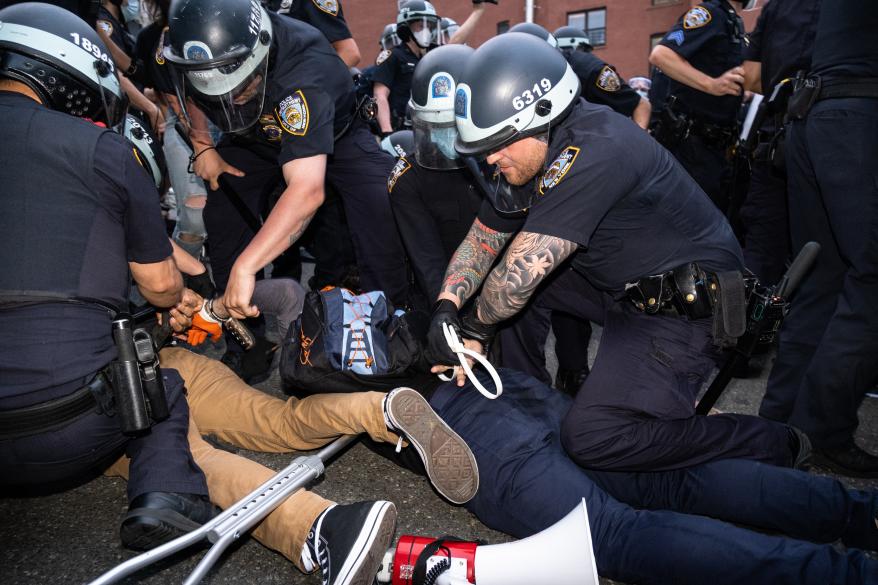

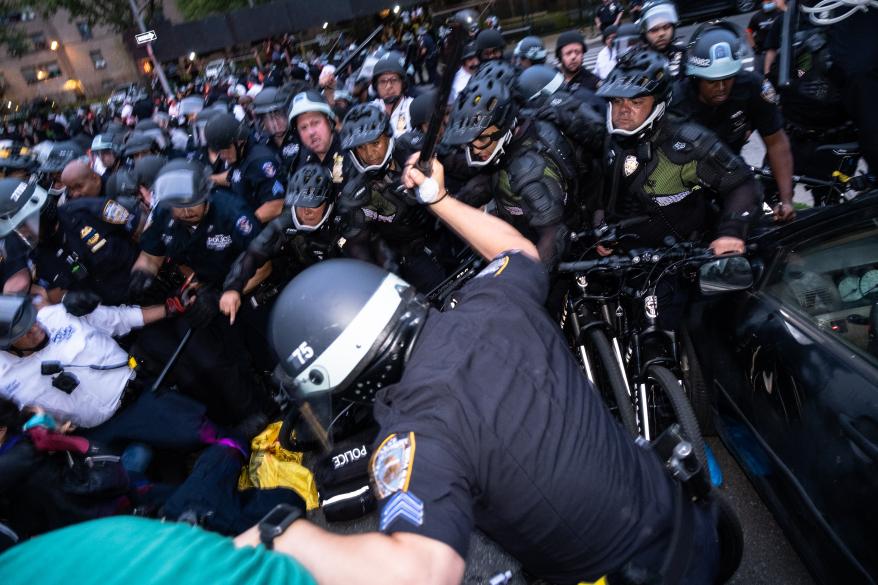

On Wednesday, a Bronx cop said he was “mystified” by news of the proposed settlement agreement.
“Kettling? That’s what we do. It’s not like they do it because these guys are model citizens. They’re doing it because they’re committing crimes or not following orders,” the officer said. “One or two of them might have been swept in there just because of wrong place, wrong time. But people were looting stores and causing mayhem at some of these protests.”
Joseph Giacalone, a retired NYPD sergeant and now a professor at John Jay College, said the courts have made it “almost impossible to deal with large-scale civil unrest” by allowing such lawsuits to proceed.
“I think you’re going to see the cops take a step back instead of getting involved with this stuff, unless it’s their physical wellbeing or the person next to them is in danger. If not, you’re only going to be part of a lawsuit or whatever they’re going to do,” he said.
The city Law Department referred The Post to the NYPD when asked for comment on the settlement agreement.
“Two-and-a-half years after the protests of 2020, much of the NYPD’s policies and training for policing large-scale demonstrations have been re-envisioned based on the findings of the department’s own, self-initiated analyses and on the recommendations from three outside agencies who carefully investigated that period,” the NYPD said in a statement.
“The NYPD remains committed to continually improving its practices in every way possible,” the department added.